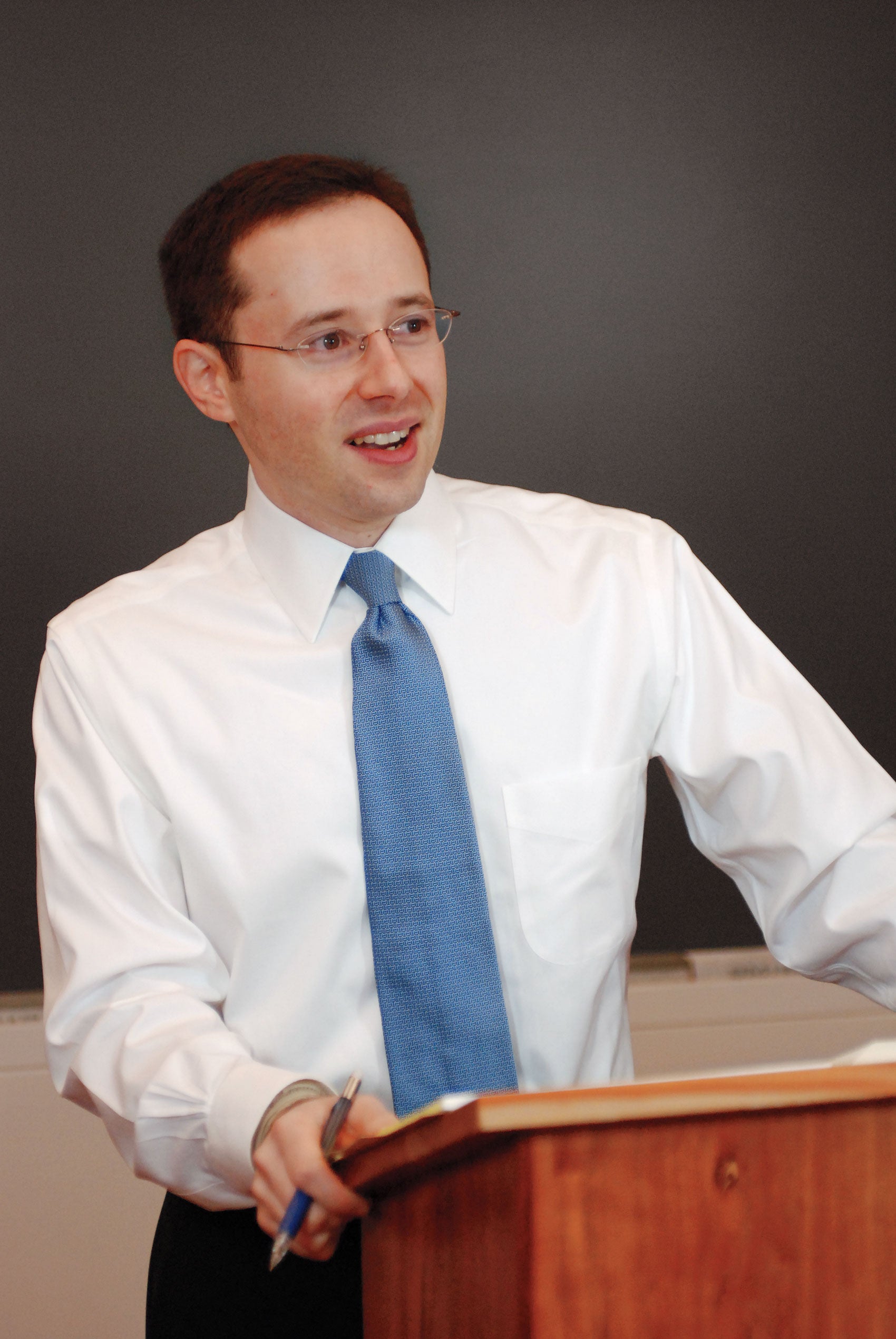Robert Sitkoff, the John L. Gray Professor of Law at HLS and an expert in trusts and estates, was interviewed in the Wall Street Journal on the Hershey Trust’s potential acquisition of Cadbury. The Q&A, “Cadbury-Hershey: Too Much Risk for the Trust’s Kids,” between Sitkoff and the Journal’s Michael Corkery appeared in the Nov. 23, 2009 edition.
Milton Hershey had no children so he said he would make the “orphan boys of the United States” his heirs.
To that end, the chocolatier founded the Milton Hershey School, which today serves 1,700 underprivileged children and has an endowment of $6.2 billion. In 2005, Hershey had the nation’s fifth largest endowment, which was about half the size of Princeton’s and Stanford’s but larger than that of the Massachusetts Institute of Technology.
On some levels, it sounds idyllic, but Robert Sitkoff, a Harvard University Law professor who focuses on trust law says the Trust has been problematic not just for the Hershey Corp. but for the students at the school.
The trust controls the chocolate company and it has nearly half of its assets tied up in the company’s shares.
“It exposes needy students to the volatility of a portfolio heavily weighted on one company,’’ Sitkoff says. “Can you imagine if Princeton said it was investing half of its endowment in Apple stock?”
Over the years, the trust has also been accused of holding up big M&A deals involving Hershey Corp for fear that it could endanger the school’s nest egg. And yet the Trust now appears to be moving toward supporting a bid for Cadbury to top Kraft’s $16.7 billion.
The Trust remains unfazed by Sitkoff’s critique. “The trust has a long standing practice that it will not sell its controlling interest in Hershey company,’’ a Trust spokesman said.
To get a better sense of the Trust’s duties in any deal, Deal Journal spoke to Sitkoff who co-authored a paper in the Columbia Law Review last year about the problems with the Hershey Trust’s current structure.
Deal Journal: Can the Trust pull off an acquisition of Cadbury?
Sitkoff: It’s stunning but happy news that the trustees are interested in doing a deal. What I don’t understand is how Hershey can swallow another company without taking on a lot of debt, which will increase the risk borne by the trust. Not only will the trust have a large percentage of its assets in one company’s stock, but that company will be loaded with debt. And as we have been reminded lately, debt holders stand in line before equity holders.
DJ: Is there another scenario where the Trust could take less risk?
Sitkoff: Hershey could use stock to acquire Cadbury, but that could dilute the Trust’s voting control, which would trigger [a review by] The Pennsylvania Attorney General.
DJ: What should the AG do?
Sitkoff: If I were the AG, I would want the Trust’s holdings diversified as soon as possible. It may make sense for the Hershey Company to takeover Cadbury, financing the deal with debt. But the Trust is not diversified, it isn’t like a normal, well-diversified and therefore risk-neutral investor. The Trust’s lack of diversification is the fundamental problem behind everything here.
DJ: What’s wrong with the way the state government oversees the trust. Aren’t they looking out for the best interest of the students?
Sitkoff: After the Trust tried to diversify in 2002, the Pennsylvania legislature enacted an amendment to the state’s prudent investor rule that requires the trustees to get approval from the Attorney General (or the court) to sell the Trust’s controlling interest. In effect, the state co-opted this nationally subsidized trust (it enjoys a federal tax exemption) for takeover protection for a local company. But the Trust’s charitable purpose is to provide for needy children.
If the Trust had been allowed in 2002 to sell and realize the control premium that was then on the table, think how many more students the Trust could care for now. Its charitable purpose is not perpetual takeover protection. It is to board and teach needy children. There are only a handful of universities with bigger endowments than the Hershey Trust, yet the Hershey School has something like 2,000 children. Why aren’t there more Hershey Schools? Why aren’t they helping more children? Instead of a larger, more secure corpus, the Trust has a smaller, undiversified portfolio – and this has been required of it by Pennsylvania lawmakers.
